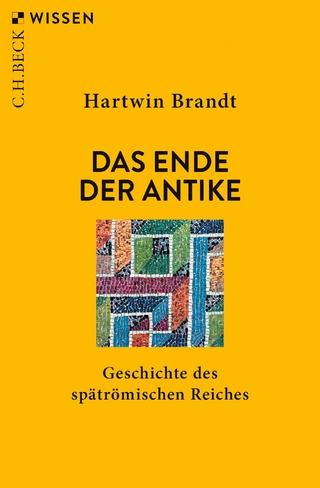
Essays on Babylonian and Biblical Literature and Religion
Brill (Verlag)
978-90-04-43517-9 (ISBN)
I. Tzvi Abusch, Ph.D. (1972), Harvard University, is Cohen Professor Emeritus of Assyriology and Ancient Near Eastern Religion at Brandeis University. His primary fields of publication are Mesopotamian religion and literature. A number of his studies on Babylonian witchcraft are collected in Mesopotamian Witchcraft (Brill, 2002) and Further Studies on Mesopotamian Witchcraft Beliefs (Brill, 2020). He is author of The Magical Ceremony Maqlû: A Critical Edition (Brill, 2016) and co-author of Corpus of Mesopotamian Anti-witchcraft Rituals (Brill, 2011–2020).
Preface
Sources
Abbreviations
part 1: Magic and Religion
Overviews and Surveys
1 Mesopotamian Religion
1 The Basis of Mesopotamian Religiosity
2 The Mesopotamian Pantheon
3 Magical Cult (Cult of the Individual)
4 The Epic of Gilgamesh
2 Magic in Mesopotamia
1 Introduction
2 Earlier Approaches to Mesopotamian Magic
3 Conceptions of the Universe and of Its Powers
4 Magical Texts
5 Ceremonies
6 Evil
3 Sacrifice in Mesopotamia
1 Mesopotamian Sacrifice: A Description
2 Blood in Mesopotamia and West Asia: A Hypothesis
Ghosts and Gods
4 Ghost and God: Some Observations on a Babylonian Understanding of Human Nature
1 Mythological Formulation
2 The Significance of Flesh as the Source of the Ghost
3 God, ṭēmu, and Personal God
5 Etemmu אטים
1 Name and Etymology
2 Character and History
3 Inside the Bible
6 Ištar
1 Name and Etymology
2 Character and History
3 Inside the Bible
7 Marduk
1 Name and Etymology
2 Character and History
3 Inside the Bible
Talking to the Gods in Mesopotamia
8 Prayers and Incantations
1 Prayers
2 Incantations
9 The Promise to Praise the God in šuilla Prayers
10 The Form and Meaning of a Babylonian Prayer to Marduk
1 The Hymnic Introduction
2 The Marduk šuilla: A New Form
3 A Prayer for Success and the Conclusion of the šuilla
11 The Form and History of a Babylonian Prayer to Nabû
12 A Paean and Petition to a God of Death: Some Comments on a šuilla to Nergal
1 Introduction
2 Hymnic Introduction
3 Petitioner’s Justification and Description of His Approach to the God
4 Description of the Petitioner’s Difficulties
5 Petitioner’s Supplication
6 Conclusions
13 The Reconciliation of Angry Personal Gods: A Revision of the šuillas
14 Two Versions of a šuilla to Gula
part 2: Literary Studies
15 Fortune and Misfortune of the Individual: Some Observations on the Sufferer’s Plaint in Ludlul bēl nēmeqi II 12–32
16 Kingship in Ancient Mesopotamia: The Case of Enūma eliš
1 Divine Origin and Physical Features
2 Kingship over His Own Family
3 The Battle
4 Creation
5 Kingship over the Universe
17 Some Observations on the Babylon Section of Enūma eliš
18 Biblical Accounts of Prehistory: Their Meaning and Formation
1 Introduction
2 Mesopotamian Sources
3 Biblical Sources
4 Summary and Conclusions
19 Two Passages in the Biblical Account of Prehistory
1 The Creation of Man and Woman
2 The Tower of Babel
20 Jonah and God: Plants, Beasts, and Humans in the Book of Jonah
part 3: Comparative Studies
21 alaktu and halakhah: Oracular Decision, Divine Revelation
1 alaktu: Mesopotamian Sources
2 halakhah: Jewish Sources and Mesopotamian Influence
22 Blood in Israel and Mesopotamia
23 Cultures in Contact: Ancient Near Eastern and Jewish Magic
part 4: Ancient Near Eastern Legal Practices and Thought
24 A Shepherd’s Bulla and an Owner’s Receipt: A Pair of Matching Texts in the Harvard Semitic Museum
25 “He Should Continue to Bear the Penalty of That Case”: Some Observations on Codex Ḫammurabi §§3–4 and §13
1 Introduction
2 Analysis and Translation
3 Meaning and Significance
4 Confirmation: Variant Readings and §13
5 Conclusion
Bibliography
Index of Passages Quoted
| Erscheinungsdatum | 04.09.2020 |
|---|---|
| Reihe/Serie | Harvard Semitic Studies ; 65 |
| Verlagsort | Leiden |
| Sprache | englisch |
| Maße | 155 x 235 mm |
| Gewicht | 724 g |
| Themenwelt | Geschichte ► Allgemeine Geschichte ► Altertum / Antike |
| Geisteswissenschaften ► Religion / Theologie ► Weitere Religionen | |
| ISBN-10 | 90-04-43517-4 / 9004435174 |
| ISBN-13 | 978-90-04-43517-9 / 9789004435179 |
| Zustand | Neuware |
| Haben Sie eine Frage zum Produkt? |
aus dem Bereich


